Physician writer
Physician writers are physicians who write creatively in fields outside their practice of medicine.
The following is a partial list of physician-writers by historic epoch or century in which the author was born, arranged in alphabetical order.
Antiquity
Middle Ages
- Avicenna (980–1037) early contributor to medical, philosophical and Islamic literature
- Yehuda Halevi (c.1075–1141) Jewish-Spanish philosopher and poet
- Maimonides (1138–1204) rabbi, and philosopher in Andalusia, Morocco and Egypt
15th century
- Adam of Łowicz (also known as Adamus Polonus; died 1514) was a professor of medicine at Poland's Kraków Academy, its rector in 1510–11, royal court physician, a humanist, writer and philosopher.
- Biernat of Lublin (1465–1529) was a Polish poet, fabulist and physician. He was one of the first Polish-language writers known by name, and the most interesting of the earliest ones.
- Nicolaus Copernicus (1473–1543) was a Polish mathematician, astronomer, physician, classical scholar, translator, Catholic cleric, jurist, governor, military leader, diplomat and economist, best known for his epoch-making book, De revolutionibus orbium coelestium.
- Girolamo Fracastoro (Fracastorius; 1478–1553) Italian scholar (in mathematics, geography and astronomy), poet and atomist; as a physician, he proposed ideas very similar to the germ theory of disease.
- Paracelsus (1493–1541) Swiss-born botanist, alchemist, occultist.
- François Rabelais (1483–1553) French satirist and author of The Lives, Heroic Deeds and Sayings of Gargantua and Pantagruel.
16th century
- Luis Barahona de Soto (1548–1595) Spanish poet admired by Cervantes
- Jan Brożek (Broscius, 1585–1652), Polish mathematician, astronomer, physician, poet, writer, musician, rector of the Kraków Academy
- Thomas Campion (1567–1620) English composer and poet
- William Gilbert (1544–1603) English natural philosopher
- Jacques Grévin (c. 1539–1570) French dramatist
- Arthur Johnston (1587–1641) Scottish poet
- Thomas Lodge (c. 1558–1625) English dramatist and writer of the Elizabethan and Jacobean periods; best remembered as the author of Rosalynde, on which Shakespeare based As You Like It
- Sebastian Petrycy of Pilzno (1554–1626) was a Polish philosopher and physician.[1]
- Michael Servetus (1511–53), Spanish theologian, cartographer, humanist; the first European to describe pulmonary circulation; burned at the stake, for his religious views, in John Calvin's Geneva.
- Andreas Vesalius (1514–64) Belgian anatomist, author of De humani corporis fabrica
17th century
- Patrick Abercromby (1656–c.1716) Scottish antiquarian, noted for being physician to King James VII (II of England)
- John Arbuthnot (1667–1735) one of Queen Anne's physicians and an associate of Jonathan Swift and Alexander Pope in the Scriblerus Club
- Sir Thomas Browne (1605–1682) British writer with mastery in diverse fields including medicine, religion, science and the esoteric.[2]
- Samuel Garth (1661–1719) British author and translator of classics
- Paul Fleming (1609–1640) was a lyricist he stood in the front rank of German poets
- Giulio Mancini (1559–1630) papal physician, art collector, and author of treatises on painting, nobility, dancing, government, and health
- Bernard Mandeville (1670–1733) Dutch philosopher, political economist and satirist who lived most of his life in England and used English for most of his published works; became famous (or infamous) for The Fable of the Bees
- Francesco Redi (1626–97) Italian poet, best known work being Bacchus in Tuscany
- Angelus Silesius, né Johannes Scheffler (1624–77) German mystic and poet who wrote the lyrics to many Christian hymns
- Henry Vaughan (1622–1695) Welsh metaphysical poet
- John Locke (1632–1704) English philosopher, father of liberalism and one of the most influential thinkers.
18th century
- Erasmus Darwin (1731–1802) British poet, grandfather of Charles Darwin
- James Grainger (1721–66) poet from a Cumberland family; friend of Dr. Johnson
- Oliver Goldsmith (1728–74) Anglo-Irish writer and poet known for his novel The Vicar of Wakefield (1766)
- Albrecht von Haller (1708–77) Swiss anatomist, physiologist, naturalist and poet
- Edward Jenner, FRS, (1749–1823) famous for introducing the smallpox vaccine; also a poet of some note
- Johann Heinrich Jung (1740–1817) German author, best known by his assumed name, Heinrich Stillin; friend of Goethe
- John Keats (1795–1821) one of the principal poets of the English Romantic movement who influenced poets such as Alfred Tennyson immensely[3]
- Justinus Andreas Christian Kerner (1786–1862) German poet who, along with Ludwig Uhland, established the Swabian group of Romantic poets; some of his poems were set to music by Robert Schumann
- Jean-Paul Marat (1743–93) Swiss-born French philosopher, political theorist and scientist best known as a radical journalist and politician from the French Revolution; stabbed to death in his bathtub by the Girondin sympathizer Charlotte Corday and memorialized in Jacques-Louis David's 1793 painting, The Death of Marat
- John Kearsley Mitchell (1798–1858) American writer, father of S. Weir Mitchell
- David Macbeth Moir (1798–1851) Scottish writer; a contributor of both prose and verse to the magazines, and particularly, with the signature of Delta, to Blackwood's Magazine
- Mungo Park (1771–1806) Scottish explorer of the African continent
- Peter Mark Roget (1779–1869) creator of the Thesaurus of English Words and Phrases (Roget's Thesaurus)
- Friedrich von Schiller (1759–1805) German writer, poet, essayist and dramatist; friend of Goethe. He was an army surgeon before achieving fame as a writer.
- Tobias Smollett (1721–71) Scottish author, known for his picaresque novels, such as The Adventures of Roderick Random (1748); best known work is The Expedition of Humphrey Clinker[4]
19th century
- Carl Ludwig Emil Aarestrup (1800–1856) Danish erotic poet
- Mariano Azuela (1873–1952) Mexican physician in Pancho Villa's army; in 1949 he received a National Prize for Literature
- Doris Bell Ball (1897–1987) wrote under the pseudonym "Josephine Bell"; a British detective novelist who wrote more than forty books; a founding member of the Crime Writers Association[5]
- Pío Baroja y Nessi (1872–1956) Spanish writer, one of the key novelists of the Generation of '98; admired by Hemingway
- Nérée Beauchemin (1850–1931) Québécois poet who attempted to produce a national literature
- Thomas Lovell Beddoes (1803–1849) English poet and dramatist whose central theme was death
- Gottfried Benn (1886–1956) German essayist, novelist and expressionist poet
- Robert Seymour Bridges, OM, (1844–1930) English poet, the only physician to hold the honour of poet laureate (1913)
- Georg Büchner (1813–1837) German dramatist and writer of prose
- Ludwig Büchner (1824–1899) German philosopher and physiologist who became one of the exponents of 19th century scientific materialism
- Mikhail Bulgakov (1891–1940) Russian novelist and playwright; author of The Master and Margarita
- Hans Carossa (1878–1956) German novelist and poet, known mostly for his autobiographical novels, and his innere Emigration (inner emigration) during the Nazi era.
- Louis-Ferdinand Céline pen name of French writer Louis-Ferdinand Destouches (1894–1961) developed a new style of writing that modernized both French and World literature
- Anton Chekhov (1860–1904) celebrated Russian short-story writer and playwright[6]
- Sir Arthur Conan Doyle (1859–1930) British author of Sherlock Holmes fame[7][8]
- Géza Csáth (né József Brenner) (1887–1919) Hungarian writer, playwright, musician, music critic and psychiatrist
- Warwick Deeping (1877–1950) prolific English novelist and short story writer; most famous novel is Sorrell and Son (1925)
- Júlio Dinis, pseudonym of Joaquim Guilherme Gomes Coelho (1839–1871) was a Portuguese doctor and writer.
- Alfred Döblin (1878–1957) was a German novelist, essayist, and doctor, best known for his novel Berlin Alexanderplatz (1929).
- William Henry Drummond (1854–1907) Irish-Canadian poet of the habitant[9]
- Georges Duhamel (1884–1966) French author who, in 1920, published Confession de minuit featuring the anti-hero Salavin; in 1935, elected member of Académie française
- Havelock Ellis (1859–1940) British writer and poet, author of The Psychology of Sex
- Rudolph Fisher (1897–1934) African-American writer who was an active participant in the Harlem Renaissance, primarily as a novelist, but also as a musician
- R. Austin Freeman (1862–1943) British writer of detective stories, most featuring the medico-legal forensic investigator Dr Thorndyke. He invented the inverted detective story[10]
- William Gilbert (author) (1804–1890) English author and father of W. S. Gilbert
- Oliver St. John Gogarty (1878–1957) Irish ear surgeon, one of the most prominent Dublin wits and best known as the inspiration for Buck Mulligan in James Joyce's novel Ulysses[11]
- Enrique González Martínez (1871–1952) Mexican poet and diplomat, considered to be primarily Modernist in nature, with elements of French symbolism
- Thomas Gordon Hake (1809–1895) English poet, intimate member of the circle of friends and followers of Rossetti
- William Alexander Hammond (1828–1900) pioneering American neurologist and the Surgeon General of the United States Army during the American Civil War
- Henry Head (1861–1940) English neurologist who conducted pioneering studies on the somatosensory system and sensory nerves. Much of this work was conducted on himself, in collaboration with the psychiatrist W. H. R. Rivers
- Oliver Wendell Holmes, Sr. (1809–1894) one of the best regarded American poets of the 19th century; helped found the literary magazine The Atlantic Monthly, his collected essays published as The Autocrat of the Breakfast Table, highly popular in its day
- Richard Huelsenbeck (1892–1974) poet and a founder and historian of Dada.
- David H. Keller (1880–1966) (most often published as David H. Keller, MD, but also known by the pseudonyms Monk Smith, Matthew Smith, Amy Worth, Henry Cecil, Cecilia Henry and Jacobus Hubelaire); a writer for pulp magazines in the mid-20th century who wrote science fiction, fantasy and horror.
- Arabella Kenealy (1859-1938), English graduate of the London School of Medicine for Women, she practiced medicine in London and Watford (1888–1894)and authored many works of fiction, including the novel Dr. Janet of Harley Street (1893).
- Geoffrey Keynes (1887–1982) English biographer, surgeon, scholar and bibliophile; younger brother of the economist John Maynard Keynes
- Janusz Korczak (1879–1942) Polish-Jewish pediatrician, hero of the Warsaw Ghetto, and author of books for and about children
- F. Reinhold Kreutzwald (1803–1882) Estonian folklorist and poet who compiled the national epic poem Kalevipoeg
- Vincas Kudirka (1858–1899) Lithuanian poet and the author of both the music and lyrics of the Lithuanian National Anthem, Tautiška giesmė
- František Langer (1888–1965) Czech author, script writer, essayist, literary critic and publicist
- C. Louis Leipoldt (1880–1947) South African poet who wrote novels, plays, stories, children's books, cookbooks and a travel diary; numbered amongst the greatest of the Afrikaner poets
- Jorge de Lima (1895–1953) Brazilian politician, poet, and writer of Alagoas
- David Livingstone (1813–1873) Scottish medical missionary, explorer of Africa, travel writer
- Paolo Mantegazza (1831–1910) Italian writer, wrote the science fiction book, L'Anno 3000
- W. Somerset Maugham (1874–1965) celebrated British novelist, short-story writer, and playwright; wrote Of Human Bondage[12]
- John McCrae (1872–1918) Canadian poet, artist and soldier during World War I and a surgeon during the battle of Ypres; best known for writing the famous war memorial poem "In Flanders Fields"
- S. Weir Mitchell (1829–1914) prominent American neurologist who wrote short stories, poetry and more than a dozen novels (Hugh Wynne, Dr North, Characteristics), including the celebrated fictional story The Strange Case of George Dedlow.[13]
- Mori Ōgai or Mori Rintaro (1862–1922) Japanese translator, novelist and poet; The Wild Geese is considered his major work; began as a writer of partly autobiographical fiction with strong overtones of German Romantic writings; midway in his career he shifted to historical novels
- Axel Martin Fredrik Munthe (1857–1949) Swedish psychiatrist, best known as the author of The Story of San Michele (1929), an autobiographical account of his work and life
- Max Simon Nordau (1849–1923) born Simon Maximilian Südfeld was a Hungarian Zionist leader, author, and social critic; co-founder of the World Zionist Organization
- Sir William Osler(1849–1919) Canadian-born; one of the greatest icons of medicine and described as the Father of Modern Medicine
- Philippe Panneton (pseudonym Ringuet) (1895–1960) Canadian academic, diplomat and writer
- Wilder Graves Penfield (1891–1976) a neurosurgeon who worked at McGill University and pioneered neurosurgical procedures for epilepsy; also wrote fiction
- Bozo Pericić (1865–1947) Croatian author of travel books, reviews on famous writers and a translation of Hamlet[14]
- John William Polidori (1795–1821) Personal physician of Lord Byron and author of The Vampyre, the first vampire story in English
- Jose P. Rizal (1861–1896) Filipino polymath, nationalist and the most prominent advocate for reforms in the Philippines during the Spanish colonial era; a polyglot conversant in at least ten languages, he was a prolific poet, essayist, diarist, correspondent, and novelist whose most famous works were his two novels, Noli me Tangere and El Filibusterismo
- Sir Ronald Ross (1857–1932) a "Renaissance man"; demonstrated the life cycle of the malarial parasite; made contributions in pure and epidemiologic mathematics, and wrote novels, plays and poetry
- Mokichi Saitō (1882–1953) Japanese poet of the Taishō period, a member of Araragi school; by the time of his death, he had written 17 collections of poems and 17,907 poems; family doctor of author Ryūnosuke Akutagawa and assisted in his suicide; novelist Kita Morio is his second son
- Arthur Schnitzler (1862–1931) Jewish-Austrian writer and dramatist. Stanley Kubrick's 1999 film Eyes Wide Shut is based on Schnitzler's Rhapsod; Schnitzler's La Ronde also spawned film versions.[15]
- Albert Schweitzer (1875–1965) German theologian, philosopher, organist, musicologist and medical missionary to Africa
- Victor Segalen (1878–1919) French ethnographer, archeologist, writer, poet, explorer, art-theorist, linguist, literary critic
- Henry Thompson, (1820–1904) indefatigable British polymath, scholar and novelist
- Margaret Todd (c. 1859-1918) Scottish writer and doctor who wrote under the pen name Graham Travers and published several novels including Mona Maclean, Medical Student.
- John Todhunter (1839–1916) Irish poet and playwright
- Saul Tschernichowsky (1875–1943) Jewish-Russian military physician during the First World War; decorated by the Russian government; nomadic life spent writing, translating, editing
- Adolfo Valderrama (1834–1902) Chilean man of letters and senator[16]
- Vladislav Vančura (1891–1942) Czech author, scriptwriter and film director
- Frederik Willem van Eeden (1829–1901) started a literary periodical, founded an agricultural colony, translated Rabindranath Tagore's work into Dutch, and wrote social and literary treatises in addition to fiction, poetry, and plays
- Ernst Weiß (1882–1940) Jewish-Austrian writer, friend of Kafka, died by his own hand in Paris in 1940 as the Nazis entered the city
- William Carlos Williams (1883–1963) American poet, short story writer, novelist, playwright and essayist; in 1963 he won a posthumous Pulitzer Prize for poetry[17]
- Charlotte Wolff (1897–1986) Jewish-German psychoanalyst and sexologist, author of poetry and novels, and one of few scientifically trained investigators of the diagnostic significance of the hand (Studies in Handreading, 1936)[18]
- Francis Brett Young (1884–1954) English novelist and poet
- Simon Vestdijk (1898–1971) a Dutch doctor, writer, poet and translator.
20th century
- Kōbō Abe (1924–1993) Japanese author known for his surrealistic, Kafkaesque style
- Keith Ablow, New York Times best-selling author
- Dannie Abse (born 1923) Welsh chest specialist who is also one of Europe's most prolific doctor-poets
- Vassily Aksyonov (1932–2009) Russian novelist who was forced to emigrate from the Soviet Union in 1980[19]
- António Lobo Antunes (born 1942) psychiatrist and leading Portuguese writer
- Jacob M. Appel (born 1973), American short story writer
- Daniel Amen, psychiatrist, New York Times author
- Janet Asimov (born 1926, Janet Opal Jeppson) American science fiction author and psychoanalyst, wife of Isaac Asimov
- Brian Andrews (born 1955), neurosurgeon, Novelist
- Alaa Al Aswany (born 1957), Egyptian writer and practicing dentist
- Ba'al Machshavot: see Israel Isidor Elyashev
- Arnie Baker (born 1953 in Montreal, Canada) is a bicycle coach, racer and writer
- Iain Bamforth (born 1959) a doctor and scientific translator from Glasgow who lives and works in Strasbourg
- Christiaan Neethling Barnard (1922–2001) South African cardiac surgeon, famous for performing the world's first successful human-to-human heart transplant
- Martin Bax (born 1933) British founder and editor of the literary journal Ambit (1959); a developmental pediatrician and editor of the journal, Developmental and Child Neurology. He is also author of the cult novel, The Hospital Ship.
- Eric Berne (1910–70), psychiatrist who created transactional analysis; author of Games People Play.
- Tadeusz Boy-Żeleński (1874–1941) Polish gynecologist, journalist, poet, most famous as the translator of over 100 French literary classics into Polish.[20]
- Ben Byron, UK author of two medical suspense novels[21]
- Rafael Campo (born 1964) director of the Harvard Program in the Medical Humanities; his practice serves mostly Latinos, gay/lesbian/bisexual/transgender people, and people with HIV
- Ethan Canin (born 1960) American short story writer and novelist; author of Emperor of the Air, Carry Me Across the Water, and other works
- Paul Carson (born 1949) from Dublin; editor of Irish Doctor magazine; has published several novels which have been best-sellers in Ireland and internationally[22]
- Theodore Dalrymple, pen name of Anthony Daniels (born 1949). Conservative writer, author of Spoilt Rotten: The Toxic Cult of Sentimentality, among others. Retired British prison doctor and psychiatrist.
- Louis-Ferdinand Céline (Louis-Ferdinand Destouches, 1894–1961), French physician and author of Voyage au bout de la nuit
- Ron Charach (born 1951) Canadian poet and practicing psychiatrist
- William T. Choctaw (born 1947) American author of Avoiding Medical Malpractice: A Physician's Guide to the Law (Springer Publishing)
- Deepak Chopra (born 1946) Indian writer on spirituality and mind-body medicine
- Peter Clement, American novelist who has written the Earl Garnet medical thriller series, Lethal Practice, Death Rounds, and The Procedure; tries to 'put the reader inside the head of an ER physician'[23]
- Don Coldsmith (born 1926) American author of primarily Western fiction; past president of Western Writers of America
- Robert Coles (born 1929) American author, child psychiatrist, and professor at Harvard University
- Alex Comfort (1920–2000) British writer and poet, author of The Joy of Sex and a science fiction novel, Tetrarch
- Robin Cook (born 1940), American author of best-selling novels, including Coma; nearly all his books deal with hot medical issues of the day, from bioterrorism to organ donation
- Jack Coulehan (born 1943) Director, Institute for Medicine in Contemporary Society, Stony Brook, New York[24][25]
- Michael Crichton (1942–2008) American author of Jurassic Park
- A.J. Cronin (1896–1981), Scottish novelist and essayist; creator of Dr. Finlay. Other works include The Stars Look Down, The Citadel, and The Keys of the Kingdom. The Citadel (1937) brought much-needed attention to inequities in the British medical system and is credited with having prompted the creation of Britain's National Health Service.
- Colin Douglas (born 1945) pseudonym of a Scottish novelist, Colin Thomas Currie; frequent British Medical Journal contributor
- Alice Dwyer-Joyce (1913–86) Irish novelist who wrote over thirty novels; many in the gothic/romantic genre
- R. Sarif Easmon (born 1930) well-known Sierra Leone playwright who practices medicine in Freetown
- Marek Edelman (1922–2009) Polish sociopolitical activist, memoirist, last leader of the 1943 Warsaw Ghetto Uprising.
- Valgarður Egilsson (born 1940) Icelandic author; member of the Icelandic Writers' Union
- Nawal El Saadawi (born 1931) Egyptian feminist who has written many books on the subject of women in Islam
- Israel Isidor Elyashev (1873–1924; pen-name: Ba'al Machshavot, Hebrew for "The Thinker" (בעל מחשבות): Lithuanian neurologist; pioneer of Hebrew and Yiddish literature; known as the first Yiddish literary critic, publisher, translator (translated Theodor Herzl's Altneuland from German into Yiddish) and forerunner of the Zionist Movement
- Frantz Fanon (1925–1961) born in Martinique, who wrote books on the psychology of colonial oppression, notably The Wretched of the Earth.
- Jacques Ferron (1921–85) Canadian author who founded the Parti Rhinocéros, which he described as "an intellectual guerrilla party"
- Michael Fitzwilliam, pseudonym of J.B. Lyons (born 1922), professor of medical history at the Royal College of Surgeons of Ireland, who wrote fiction in the 1960s[26]
- Alice Weaver Flaherty (born ) American neurologist, author of The Midnight Disease: The Drive to Write, Writer's Block, and the Creative Brain
- Viktor Frankl (1905–1997) Austrian neurologist and psychiatrist, author of Man's Search for Meaning
- Sigmund Freud (1856–1939), Austrian psychoanalyst, author of many books prized as much for their literary qualities.
- Graeme Garden (born 1943) British comedy writer and performer from Scotland, actor, television director, and author, he became well known as a member of The Goodies comedy trio; author of a novel The Seventh Man
- Tess Gerritsen (born 1953) American writer of gothic thrillers with a medical theme[27]
- Peter Goldsworthy (1951) Australian writer who has won many awards for his short stories, poetry, novels, and opera libretti
- Richard Gordon, pen name of Gordon Ostlere (born 1921) English author of novels, screenplays for film and television and accounts of popular history; most famous for comic novels on a medical theme starting with Doctor in the House, and their film, television and stage adaptations; The Alarming History of Medicine was published in 1993 followed by The Alarming History of Sex
- John Grant (born 1933) English author who writes under the pen name Jonathan Gash. He is the author of the Lovejoy series of novels
- Lars Johan Wictor Gyllensten (1921–2006) Swedish author and physician, and a member of the Swedish Academy
- James Ene Henshaw (1924–2007) one of the pioneering dramatists in Nigeria, he was also one of the first to be published outside West Africa
- Miroslav Holub (1923–1998) Czech poet, heavily influenced by his experiences as an immunologist, wrote many poems using his scientific knowledge to poetic effect
- Richard Hooker (1924–1997) American writer and surgeon who wrote under the pseudonym Richard Hooker. His most famous work was MASH (1968)
- Khaled Hosseini (born 1965) Afghanistan-born American novelist; author of the bestsellers The Kite Runner and A Thousand Splendid Suns
- Wil Huygen (born 1923) Dutch author and painter, best known for the picture books on gnomes
- Yusuf Idris, also Yusif Idris (1927–91) Egyptian writer of plays, short stories, and novels who wrote realistic stories about ordinary and poor people. Many of his works are in the Egyptian vernacular, and he was considered a master of the short story
- P. C. Jersild (born 1935) Swedish writer, best known for Barnens ö (The Island of the Children) filmed in 1980 by Kay Pollak
- Alice Jones, American poet, practiced internal medicine, psychiatry, now psychoanalysis. Co-editor of Apogee Press.
- Carl Jung (1875–1961), Austrian psychoanalyst and author.
- James Kahn (born 1947) American writer, best known for his novelization of Return of the Jedi, Poltergeist and Indiana Jones and the Temple of Doom. He has also written for well-known television series such as Melrose Place, Star Trek: The Next Generation, St. Elsewhere and E/R
- Christopher Kasparek (born 1945), Scottish-born writer of Polish descent who has edited and translated works by Ignacy Krasicki, Bolesław Prus, Florian Znaniecki, Władysław Tatarkiewicz, Marian Rejewski and Władysław Kozaczuk, as well as the Constitution of 3 May 1791.
- Harold L. Klawans (1937–98) wrote Chekhov's Lie, about the challenges of combining writing with the medical life
- Bernard Knight, CBE (born 1931) has written about thirty books, including contemporary crime fiction, historical novels about Wales, biography, non-fiction popular works on forensic medicine, twelve medico-legal textbooks and the current highly acclaimed Crowner John Mysteries series of 12th-century historical mysteries[28]
- Siegfried Kra (born 1930 in Poland) studied in Switzerland; hosted a National Public Radio series on heart disease and wrote several books on medicine for the lay public which are hard to classify as they are a blend of fiction and nonfiction, like some works of his Yale surgical colleague Richard Selzer
- Ronald David Laing (1927–89) Scottish psychiatrist who wrote extensively on mental illness and particularly the experience of psychosis
- Stanisław Lem (1921–2006) Polish science fiction, philosophical and satirical writer whose books have been translated into 41 languages and have sold over 27 million copies
- Carlo Levi (1902–1975) Italian novelist and writer; author of Christ Stopped at Eboli
- Serge Liberman (born 1942) Jewish-Russian author of short stories including, On Firmer Shores, A Universe of Clowns, and Voices from the Corner; has lived in Australia since 1951[29]
- Edward Lowbury (1913–2007) English bacteriologist and pathologist who was also a published poet and wrote criticism and biography
- John E. Mack (1929–2004) Pulitzer Prize-winning biographer, also considered an authority on the spiritual or transformational effects of alleged alien-encounter experiences
- Anne Macleod (born 1951) from Aberdeen, a dermatologist, poet and novelist[30]
- Martin MacIntyre (born 1965) from Glasgow; works in both Gaelic and English[31]
- Giovanni Magri (born 1937) Italian writer whose recent books include Notte lungo i Navigli – dieci storie milanesi (2003), I luoghi di una vita (2004), and Viaggio senza ritorno – tre racconti (2006)[32]
- Adeline Yen Mah (born 1937) Chinese-American author
- J. Nozipo Maraire (born 1966) Zimbabwean writer; author of Zenzele: A Letter for My Daughter
- Félix Martí Ibáñez (1912–1972) Spanish author and minister for the Republic during the Spanish Civil War; exiled during Franco's era, he became a United States citizen and published the popular MD magazine in 1950s
- Luis Martin Santos (1924–1964) Spanish novelist who tried to develop a psychology of the whole person
- Alexander McCall Smith, CBE, FRSE, (born 1948) Rhodesian-born Scottish writer and Emeritus Professor of Medical Law at the University of Edinburgh, Scotland; writer of fiction, most widely known as the creator of the The No. 1 Ladies' Detective Agency Series
- Keith McCarthy (born 1960) British author of crime novels[33]
- Jed Mercurio (born 1966) British writer who also writes under the name John MacUre; created the television series Cardiac Arrest and Bodies; has also written and directed for The Grimleys
- George Milkomane (1903–1996) Russian author; wrote under a variety of pseudonyms (e.g.George Sava) author of over one hundred and twenty books
- Sir Jonathan Wolfe Miller, CBE (born 1934) British theatre and opera director, author, television presenter, humorist and sculptor
- Amitabh Mitra (born 1955) South African poet of Indian origin, working at Cecilia Makiwane Hospital in Mdantsane township
- Taghi Modarressi (1931–1997) Iranian novelist who wrote in English and Persian; was married to the writer Ann Tyler[34]
- David Monger (1908–72) first president of the Guild of Welsh Playwrights; wrote in both English and Welsh, and contributed several radio plays to the BBC
- David Moolten (born 1961) American poet (Plums & Ashes, 1994; Especially Then, 2005)
- Merrill Moore (1903–57) contributor to The Fugitive, became a member of the great literary circle that started the "modern Southern literature," the Southern Agrarian Movement; most prolific sonneteer ever, he wrote over forty thousand sonnets[35]
- Fernando Goncalves Namora (1919–1989) was a Portuguese writer and medical doctor.
- Taslima Nasrin (also spelled Taslima Nasreen and popularly referred to as 'Taslima', born 1962) Bengali Bangladeshi author and feminist who writes about the treatment of women in Islam; lives in exile in India and has received death threats from fundamentalists
- László Németh (1901–75) from Hungary made his literary debut in Nyugat with a closely observed portrait of a peasant woman (Mrs Horváth Dies, 1925); wrote and edited his own periodical, Witness (1932–36)
- Nelson Erlick: first novel was GermLine; also published medical thriller, The Xeno Solution (which covers xenotransplantation)[36]
- Josef Nesvadba (1926–2005) Czech science fiction writer, the best known from the 1960s generation; pioneer of group psychotherapy in Czechoslovakia
- António Agostinho Neto (1922–79), first President of Angola (1975–1979), leader of the Popular Movement for the Liberation of Angola (MPLA) and celebrated poet
- Abioseh Nicol (Davidson Nicol) (1924–94) Sierra Leonean academic, diplomat, writer and poet
- Alan E. Nourse (1928–1992) American science fiction author
- Sherwin Nuland (1930–2014) American author who teaches bioethics and medicine at the Yale University School of Medicine
- Avodah Komito Offit (born 1931) practiced psychiatry in New York City; she has been described as "the Montaigne of human sexuality"[37]
- Danielle Ofri (born 1965). Author of Singular Intimacies: Becoming a Doctor at Bellevue, Incidental Findings and Medicine in Translation: Journeys with My Patients. Internist at Bellevue Hospital and NYU School of Medicine.
- Ferdie Pacheco (born 1927) prolific author and painter, nicknamed "The Fight Doctor"; personal physician of Muhammad Ali
- Michael Stephen Palmer (born 1942) author of 13 novels, often called the Medical thrillers series[38]
- M. Scott Peck (1936–2005), American psychiatrist whose The Road Less Traveled sold more than seven million copies and was on the New York Times best-seller list for over six years
- Walker Percy (1916–1990) American Southern author whose interests included philosophy and semiotics[39]
- Lenrie Leopold Wilfred Peters (born 1932) Gambian novelist and poet
- Steve Pieczenik (born 1943) is author of psycho-political thrillers and the co-creator of the best-selling Tom Clancy's Op-Center and Tom Clancy's Net Force paperback series[40]
- Bill Pomidor: author of a series of thrillers featuring husband and wife medical detectives
- Stephen Potts (born 1957) British author of children's books
- Joe Reich, (Born 1946) Australian Ophthalmologist, author of I Know Precious Little.[41]
- João Guimarães Rosa (1908–1967) the greatest Brazilian novelist born in the 20th century
- Wilhelm Reich (1897–1957), Austrian-American psychiatrist, author of The Mass Psychology of Fascism and Character Analysis.
- Carlos Vieira Reis (born 1935) Portuguese writer who has published several novels, books of poetry and essays; current president of the World Union of Physician Writers[42]
- Theodore Isaac Rubin (born 1923) iconoclastic psychiatrist, wrote more than twenty-five works of fiction and nonfiction; his David and Lisa was made into an acclaimed film in 1962
- Suhayl Saadi (born 1961) is an author and dramatist based in Glasgow
- Oliver Wolf Sacks (1933–2015) wrote popular books about his patients (e.g. The Man Who Mistook his Wife for a Hat), the most famous of which is Awakenings, which was adapted into a film starring Robin Williams and Robert De Niro
- Ghulam Husayn Sa'idi (1936–1985) Iranian author whose satires became anathema to the Shah's regime; he was imprisoned, tortured, and exiled; one story, The Rubbish Heap was made into a film, shown in the United States as The Cycle
- Ferrol Sams (born 1922) American novelist; author of Run with the Horsemen, who draws heavily on southern storytelling tradition
- Charles Savona-Ventura (born 1955) Maltese obstetrician-gynaecologist concentrating researches on reproductive epidemiology and diabetes in pregnancy. Also a prolific publisher on the Natural Sciences, particularly Geology, Herpetology; and many aspects of life and history of Malta, particularly medical history.[43]
- Moacyr Scliar (1937–2011) Jewish-Brazilian writer; most of his writing centers on issues of Jewish identity in the Diaspora and particularly on being Jewish in Brazil
- Richard Selzer (born 1928) American author of such celebrated works as Mortal Lessons, Confessions of a Knife, Letters to a Young Doctor and Taking the World in for Repairs which blur the line between case reporting and fiction[44]
- Samuel Shem, pen-name Stephen Joseph Bergman (born 1944) wrote The House of God and Mount Misery, both fictional but close-to-real first-hand descriptions of the training of doctors[45]
- David Shobin (born 1945) American writer of thrillers with a medical theme[46]
- David Shrayer-Petrov (born 1936) Russian-American fiction writer, poet, and essayist, best known for his Russian trilogy of novels about Jewish refuseniks and for his collections of short stories Jonah and Sarah, Autumn in Yalta and Dinner with Stalin, all of which feature medical themes and characters who are doctors and nurses. He served as a military physician in the Soviet Union, practiced as an endocrinologist, worked as a research microbiologist and oncologist.
- Alison Sinclair (born 1959) writes award-winning science fiction[47]
- Frank Slaughter, pseudonym C.V. Terry (1908–2001) American bestselling novelist whose themes include history, the Biblical world, new findings in medical research and technology; wrote Doctors' Wives[48]
- Benjamin Spock (1903–1988) – American pediatrician, wrote Baby and Child Care
- John Stone (born 1936) American poet, essayist, and lecturer[49]
- Ken Strauss (born 1953) novelist who helps promote the work of other physician writers
- Han Suyin pen name of Elizabeth Comber, born Rosalie Elisabeth (born 1917), Chinese-born author of several books on modern China, novels set in East Asia, and autobiographical works; she currently resides in Lausanne and has written in English and French
- Barbara Szeffer–Marcinkowska (born in Warsaw) is a Polish maxillary and trauma surgeon and president of the Polish Union of Physician Writers (Unia Polskich Pisarzy Medyków)[50]
- Raymond Tallis (born 1946) British author has published a novel, three volumes of poetry and over a dozen books on philosophy, literary theory, art and cultural criticism; in 2004 he was identified in Prospect magazine as one of the top 100 public intellectuals in the United Kingdom; wrote The Enduring Significance of Parmenides: Unthinkable Thought
- Lewis Thomas (1913–1993) celebrated American essayist and poet
- Leonid Tsypkin (1926–1982) Jewish-Russian writer born in Minsk, best known for his book Summer in Baden-Baden
- Gael Turnbull (1928–2004) Scottish poet who was an important precursor of the British Poetry Revival
- Vaino Vahing (born 1940) former psychiatrist, one of the most famous and gifted of Estonian writers; most of his publications date from the 1970s and '80s.
- Abraham Verghese (born 1955) Indian-American professor at Stanford University Medical School, born and reared in Ethiopia, author of the novel, Cutting for Stone.
- Arturo Vivante (born 1923) publishes in numerous prominent magazines, most notably in The New Yorker where he has published over 70 short stories
- Karl Edward Wagner (1945–1994) American writer, editor and publisher of horror, science fiction, and heroic fantasy
- Phil Whitaker (born 1966) book reviewer for the New Statesman and a novelist
- James White (1928–1999) wrote the Sector General Series about a hospital in space, but was not a physician. He wanted to be one, but "he had to go out and work" (see article in Wikipedia and author's web site.)
- William Carlos Williams (1883–1963) was an American poet closely associated with modernism and Imagism. He was also a pediatrician and GP.
- Tim Willocks (born 1957) British novelist whose work usually features a central character with extensive medical knowledge (especially of drugs) and martial arts ability (Willocks is a black belt in Shotokan karate)
- F. Paul Wilson (born 1946) writes novels and short stories primarily in the science fiction and horror genres
- Irvin Yalom (born 1931) existentialist and accomplished psychotherapist; produced a number novels and also experimented with writing techniques; in Everyday Gets a Little Closer he invited a patient to co-write about the experience of therapy
- C. Dale Young (born 1969) American poet, editor and educator; edits poetry for New England Review.
21st century
- Chris Adrian, author, paediatrician, Harvard Divinity School graduate
- Monther Alkabbani (born 1970), celebrated Saudi Arabian writer, novelist and surgeon
- Janet Asimov, psychiatrist, psychoanalyst, and science fiction writer
- Gyan Chaturvedi (born 1952), Indian cardiologist, author, and columnist. He is a prolific writer of much-acclaimed satire in Hindi.
- Brandon Colby, writer on predictive medicine and genetic testing
- Joel Fuhrman, family physician, author, print and TV advocate of a a micronutrient-rich diet
- Atul Gawande (b. 1965) general and endocrine surgeon at Brigham and Women's Hospital in Boston, Massachusetts and is The New Yorker medical writer
- Tess Gerritsen, fiction novelist
- Steven Hacker, dermatologist, author
- Perri Klass, journalist, pediatrician, New York University professor
- Vincent Lam, Canadian writer (Bloodletting & Miraculous Cures)
- William James Maloney, American dentist, author
- Howard Markel, physician, medical historian, journalist, editor, national best selling author, and professor at The University of Michigan
- Richard Mounce, endodontist and magazine writer
- Siddhartha Mukherjee, oncologist, Pulitzer Prize winner, author of The Emperor of All Maladies: A Biography of Cancer
- Taslima Nasrin, Bengali author and former physician
- Danielle Ofri, essayist, editor, practicing internist, and professor at New York University School of Medicine
- Kevin Patterson, Canadian writer
- Nawal El Saadawi, Egyptian feminist writer, activist, physician and psychiatrist
- Abraham Verghese, Indian-American New York Times Bestselling author, Professor at Stanford University Medical School, Department of Internal Medicine
- Martin Winckler, physician, writer, TV critic
Why physicians write
Physicians have a long history, dating back to Greek medicine, of literary activities. This may have its origins in mythology. Apollo was the god of both poetry and medicine. Pallas Athene was the goddess of poetry, healing and war. Brigit was the Celtic patroness of poets, smiths and healers.
It is thought that through their privileged and intimate contact with those moments of greatest human drama (birth, illness, injury, suffering, disease, death) physicians are in a unique position to observe, record and create the stories that make us human. "The clinical gaze [has] much in common with the artist's eye."[51]
Robert Louis Stevenson, in his Preface to Underwoods,[52] described this unique privilege:
There are men and classes of men that stand above the common herd: the soldier, the sailor, and the shepherd not infrequently; the artist rarely; rarelier still, the clergyman; the physician almost as a rule. He is the flower (such as it is) of our civilization; and when that stage of man is done with, and only to be marvelled at in history, he will be thought to have shared as little, as any in the defects of the period, and most notably exhibited the virtues of the race. Generosity he has, such as is possible to those who practise an art, never to those who drive a trade; discretion, tested by a hundred secrets; tact, tried in a thousand embarrassments; and what are more important, Heraclean cheerfulness and courage. So that he brings air and cheer into the sick room, and often enough, though not so often as he wishes, brings healing.
The challenges of combining medical practice with writing are addressed by neurologist and pharmacologist Harold L. Klawans in his study, Chekhov's Lie.[53]
Worldwide organizations
In 1955 a group of physician-writers created the International Federation of Societies of Physician-Writers (FISEM). One of the founders was Dr. André Soubiran, author of Hommes en blanc (The Doctors). Other founders included Italian Professors Nasi and Lombroso, Belgian Drs. Sévery and Thiriet, Swiss physicians Junod and René Kaech, and eminent French writers of the medical academy. Dr. Mirko Skoficz was a key figure at the first FISEM congress in San Remo, Italy, along with his wife, Italian film star Gina Lollobrigida.
In 1973 FISEM changed its name to UMEM—Union Mondiale des Écrivains Médécins, or World Union of Physician Writers.[42] Its current president is Dr. Carlos Vieira Reis of Portugal. UMEM is an umbrella organization that subsumes physician-writer groups in:
- Belgium, Groupement Belge des Médecins-Écrivains[54]
- Brazil, Sociedade Brasileira de Médicos Escritores SOBRAMES[55]
- Bulgaria, Club des Écrivains Médecins en Bulgarie[56]
- France, Groupement des Ecrivains – Médecins [GEM][57]
- Germany, Bundesverband Deutscher Schriftstellerärzte [BDSA][58]
- Greece, Hellenic Society of Physician Writers[59]
- Italy, A.M.S.I.[60]
- Netherlands, Penaescula [61]
- Poland, Unia Polskich Pisarzy Medyków [UPPL][62]
- Portugal, Sociedade Portuguesa dos Escritores Médicos [SOPEAM][63]
- Romania, Societaea Medicilor Scriitori şi Publicişti din România[64]
- South America, Liga Sud-Americana de Médicos-Escritores LISAME[65]
- Spain, Asociación Española de Médicos Escritores e Artistas [AEMEA][66]
- Switzerland, Association Suisse des Écrivains Médecins [ASEM][67]
Anglophone associations
In the Anglophone world, the lead has been taken by New York University (NYU) with their encyclopedic Literature, Arts & Medicine Database[68] and blog.[69] An associated resource is the Medical Humanities directory: http://medhum.med.nyu.edu/directory.html.
These sites were established in 1994 at the New York University School of Medicine and were:
"dedicated to providing a resource for scholars, educators, students, patients, and others who are interested in the work of medical humanities. We define the term 'medical humanities' broadly to include an interdisciplinary field of humanities (literature, philosophy, ethics, history and religion), social science (anthropology, cultural studies, psychology, sociology), and the arts (literature, theater, film, and visual arts) and their application to medical education and practice. The humanities and arts provide insight into the human condition, suffering, personhood, our responsibility to each other, and offer a historical perspective on medical practice. Attention to literature and the arts helps to develop and nurture skills of observation, analysis, empathy, and self-reflection – skills that are essential for humane medical care. The social sciences help us to understand how bioscience and medicine take place within cultural and social contexts and how culture interacts with the individual experience of illness and the way medicine is practiced."[70]
Daniel Bryant, an American internist, has compiled an extensive list of fellow physician writers.[71]
The Johns Hopkins University Press publishes Literature and Medicine, "a journal devoted to exploring interfaces between literary and medical knowledge and understanding. Issues of illness, health, medical science, violence, and the body are examined through literary and cultural texts."[72]
Dartmouth Medical School publishes Lifelines, an art and literature journal dedicated to featuring the works of physicians[73] and their experiences in medicine.
The British Medical Association keeps an updated, though selective, list of physician-writers on its web site.[74]
See also
- Lists of writers
- Writers by non-fiction subject area (category)
Notes
- ↑ Petrycy Sebastian, Encyklopedia Polski (Encyclopedia of Poland), Kraków, Wydawnictwo Ryszard Kluszczyński, 1996, ISBN 83-86328-60-6, p. 496.
- ↑ Keith Thomas, "The Greening Genius of Thomas Browne", The New York Review of Books, vol. LXII, no. 16 (22 October 2015), pp. 67–69.
- ↑ W Osier, John Keats–the apothecary poet, Johns Hopkins Husp Bull 7 (1896), pp. 11–16.
- ↑ The San Antonio College LitWeb Tobias Smollett Page
- ↑ "Josephine Bell".
- ↑ Anton CHEKHOV
- ↑ "The Arthur Conan Doyle Society Home Page".
- ↑ "The Chronicles of Sir Arthur Conan Doyle".
- ↑ "William Henry Drummond".
- ↑ "R. Austin Freeman".
- ↑ SEARC'S WEB GUIDE – Oliver St. John Gogarty (1878–1957)
- ↑ Craig Showalter (September 1997). "Somerset Maugham — World Traveler, Famed Storyteller". Caxtonian. Caxton Club of Chicago.
- ↑ In: SW Mitchell, Editor, The autobiography of a quack and other stories, The Century Co, New York (1915), pp. 83–109.
- ↑ Perović S, Sirovica S. "[Life and work of Dr. Bozo Pericić (1865-1947), genius of our medicine].".
- ↑ "Schnitzler, Arthur". Archived from the original on 28 May 2006. Retrieved 9 March 2008.
- ↑ "Adolfo Valderrama Sainz de la Peña - Reseñas Biográficas Parlamentarias".
- ↑ "PAL: William Carlos Williams (1883-1963)".
- ↑ "Charlotte Wolff".
- ↑ "Vassily Aksyonov". eNotes.
- ↑ Photo: http://www.wiw.pl/literatura/obrazki/autorzy_30.jpg
- ↑ "Samson's Quest".
- ↑ "100 Masters of Crime - Paul Carson".
- ↑ "Peter Clement - Official Website".
- ↑ jlc
- ↑ Belli A, Coulehan J. Blood and Bone – Poems by Physicians. Iowa City: University of Iowa Press; 1998
- ↑ "Ricorso: Digital materials for the study and appreciation of Anglo-Irish Literature".
- ↑ "Internationally Bestselling Author Tess Gerritsen". Tess Gerritsen.
- ↑ "Bernard Knight at Tangled Web UK".
- ↑ " ". Jewishaustralia.com. Retrieved 2013-12-12.
- ↑ Anne MacLeod – Books From Scotland
- ↑ Martin MacIntyre / Màrtainn Mac an t-Saoir – Books From Scotland
- ↑ "Home Page di Autore non presente".
- ↑ "Keith McCarthy - The official website of Author Keith McCarthy".
- ↑ Modarressi – Murphy
- ↑ Merrill Moore (1903–1957)
- ↑ "Nelson Erlick :: Author's Official Site".
- ↑ Quoted from Maggie Scarf in The New Republic review of ' Night Thoughts: Reflections of a Sex Therapist
- ↑ "Michael Palmer Books".
- ↑ "Department of English".
- ↑ Steve Pieczenik
- ↑ Reich, Joe (2011). I Know Precious Little. Australia: Sid Harta. ISBN 1-921829-70-2.
- 1 2 UMEM
- ↑ Prof. C. Savona-Ventura
- ↑ "Teen Ink".
- ↑ Shem, S. (2002). "Fiction as Resistance". Annals of Internal Medicine. 137 (11): 934–7. doi:10.7326/0003-4819-137-11-200212030-00022. PMID 12459000.
- ↑ "MAA - Alumni Profile - David Shobin '69".
- ↑ ::alison sinclair::science, medicine, and science fiction::
- ↑ Liukkonen, Petri. "Frank G. Slaughter". Books and Writers (kirjasto.sci.fi). Finland: Kuusankoski Public Library. Archived from the original on 10 February 2015.
- ↑ "John Stone (1936-2008)". New Georgia Encyclopedia.
- ↑ "PROSE POÉTIQUE EN MINIATURE, Téléphone de Barbara SZEFFER-MARCINKOWSKA".
- ↑ McLellan, M. F. (1997). "Literature and medicine: Physician-writers". The Lancet. 349 (9051): 564–7. doi:10.1016/S0140-6736(97)80120-1. PMID 9048804.
- ↑ Edinburgh edition, 1894; London, Charles Baxter & Sidney Colvin.
- ↑ Harold L. Klawans, Chekhov's Lie, 1997, ISBN 1-888799-12-9.
- ↑ Sociétés | UMEM – Union Mondiale des Écrivains Médecins
- ↑ pt.wikipedia – Sobrames
- ↑ Sociétés | UMEM – Union Mondiale des Écrivains Médecins
- ↑ "Ecrivains-Medecins.com".
- ↑ Sociétés | UMEM – Union Mondiale des Écrivains Médecins
- ↑ Sociétés | UMEM – Union Mondiale des Écrivains Médecins
- ↑ Sociétés | UMEM – Union Mondiale des Écrivains Médecins
- ↑ Sociétés | UMEM – Union Mondiale des Écrivains Médecins
- ↑ Sociétés | UMEM – Union Mondiale des Écrivains Médecins
- ↑ Sociétés | UMEM – Union Mondiale des Écrivains Médecins
- ↑ Sociétés | UMEM – Union Mondiale des Écrivains Médecins
- ↑ Sociétés | UMEM – Union Mondiale des Écrivains Médecins
- ↑ Sociétés | UMEM – Union Mondiale des Écrivains Médecins
- ↑ Sociétés | UMEM – Union Mondiale des Écrivains Médecins
- ↑ <http://litmed.med.nyu.edu>
- ↑ <http://medhum.med.nyu.edu/blog/>
- ↑ "LitMed: Literature Arts Medicine Database".
- ↑ Bryant, D. C. (1994). "A roster of twentieth-century physicians writing in English". Literature and Medicine. 13 (2): 284–305. doi:10.1353/lm.2010.0003. PMID 7823633.
- ↑ "The Johns Hopkins University Press".
- ↑ Lifelines, 2011-2012, A Literary & Art Journal from The Geisel School of Medicine at Dartmouth
- ↑ "Fiction writers with medical qualifications". January 2008. Archived from the original on 6 October 2008.
References
- Charach R., The Naked Physician: Poems about the Lives of Patients and Physicians, Kingston, Ontario: Quarry Press; 1990.
- Dana CL. Poetry and the Doctors: A Catalogue of Poetical Works Written by Physicians. Woodstock: Elm Tree Press; 1916.
- Fischer, L. P. (2004). "Some French doctors as writers in the first half of the XXth century". Histoire des sciences medicales. 38 (1): 65–80. PMID 15211994. (Cites more than 50 French medical authors of this period, many novelists or literary critics)
- Gordon JD. Doctors as Men of Letters: English and American Writers of Medical Background. New York: The New York Public Library; 1964.
- Green JP. "Physicians practicing other occupations, especially literature." The Mount Sinai Journal of Medicine. 1993;60:132-55.
- Hunter KM. Doctors' Stories: the Narrative Structure of Medical Knowledge. Princeton University Press, Princeton, NJ (1991).
- Jones AH. "Literature and medicine: an evolving canon," The Lancet 348 (1996), pp. 1360–1362.
- Jones AH. "Literature and medicine: physician-poets," The Lancet 349 (1997), pp. 275–278.
- Jones AH. "Literature and medicine: traditions and innovations." In: B Clarke and W Aycock, editors, The Body and the Text: Comparative Essays in Literature and Medicine, Texas Tech University Press, Lubbock (1990).
- Klawans, Harold L., Chekhov's Lie, 1997, ISBN 1-888799-12-9.
- Lowbury E. Apollo: An Anthology of Poems by Doctor Poets. London: Keynes Press; 1990.
- McDonough ML. Poet-Physicians: An Anthology of Medical Poetry Written by Physicians. Springfield: Charles C. Thomas; 1945.
- Monro TK. The Physician as Man of Letters, Science and Action. Edinburgh: E. & S. Livingstone Limited, 1951.
- Morrell RC. "Physician-writers: Chekhov, Keats, and Maugham," Pharos 59 (1986), pp. 26–30.
- Mukand J, editor. Articulations: the Body and Illness in Poetry, University of Iowa Press, Iowa City, IA (1994).
- Paige NM, Alloggiamento T., Vital Signs: The UCLA Collection of Physicians' Poetry. Los Angeles: University of California at Los Angeles, 1990.
- Peschel ER. Medicine and Literature. New York: Neale Watson Academic Publications, Inc., 1980.
- Rousseau JS. "Literature and medicine: the state of the field," Isis 72 (1981), pp. 406–424.
- Smithers DW. This Idle Trade: On Doctors Who Were Writers. Tunbridge Wells, United Kingdom: Dragonfly Press, 1989.
- Trautmann J, Pollard C. Literature and Medicine: An Annotated Bibliography. Pittsburgh: University of Pittsburgh Press, 1982.




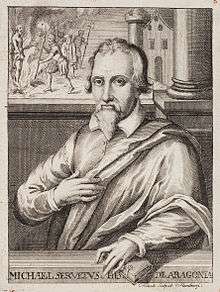


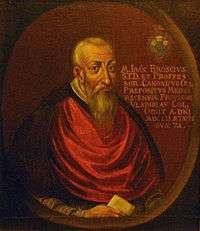


.jpg)
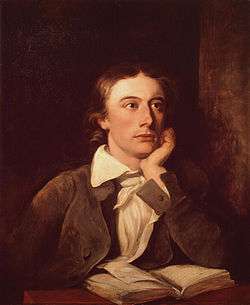


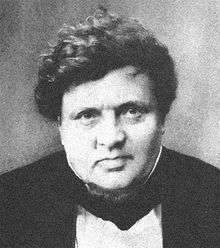



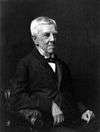




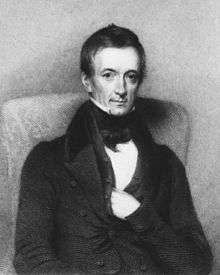

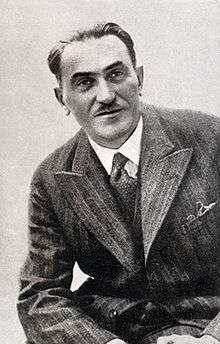
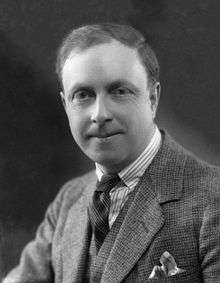



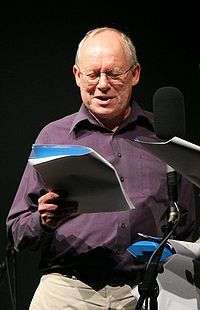



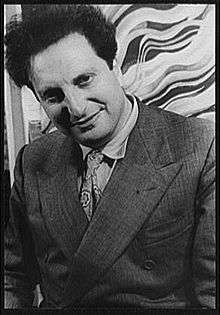
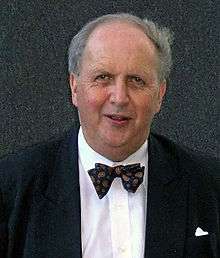

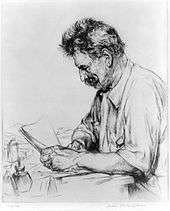
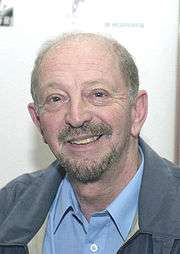




_crop.jpg)


